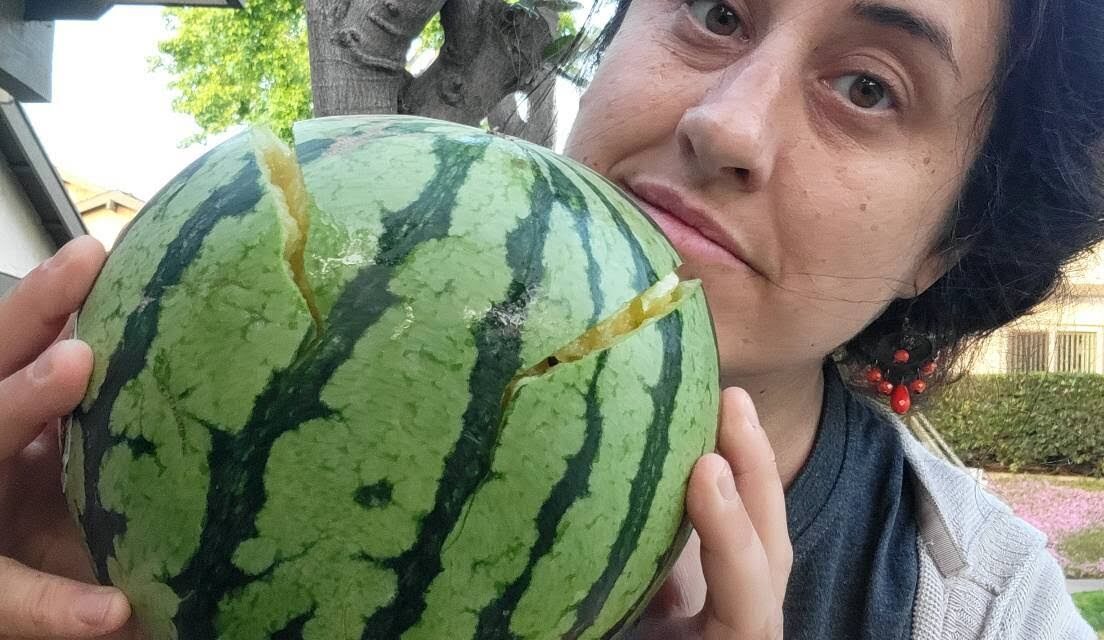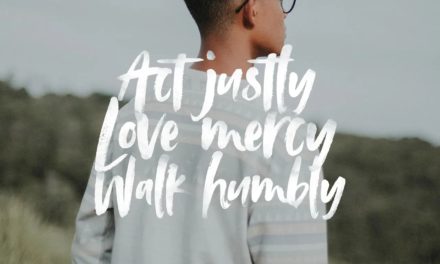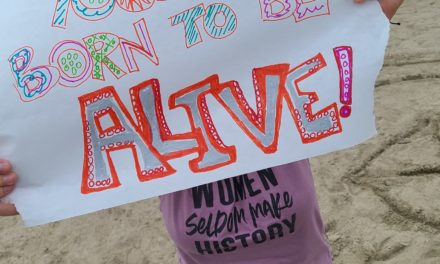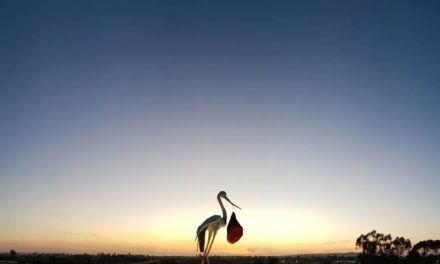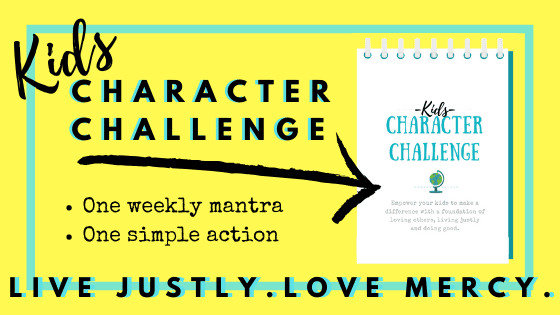How do we engage in advocacy when we don’t know where we stand on a social issue? One of the most divisive topics right now is what is going down in the Middle East, specifically between Palestine and Israel. It is a good example of how people respond (or don’t respond) when they don’t know what they believe about a social issue.
Whether you have an opinion already or not on this conflict between Israel and Palestine, I am going to share the basics about it so we have a common starting line. If you are a news-junkie or are really up on this social issue, feel free to skip this first section to get to how to advocate when you don’t know where you stand. However, according to this research compiled by Pew in March of this year (2024), many Americans might feel sympathy for both the Palestinians and Israelis, but are actually unsure what they believe about the war.
Why is that?
A lot of people who grew up pro Israel and being taught to resist any forms of antisemitism don’t know how to process the information about a genocide happening in Gaza, continued bombings, and a horrific humanitarian crisis developing. Guess what? If this is you, you don’t have to know everything you believe about the whole complex social issue. (Heck, it has more than a couple millennia of history!) Not only do I hope to help you process this complex issue, but I hope to give you a way to respond even if you don’t come to a conclusion.
Not knowing what we believe about social issues is one of the top five hindrances to taking action. (See the Five Hindrances here.) As humans act on what we believe, addressing belief is one of an advocate’s most important jobs. But sometimes it is hard to figure that out.
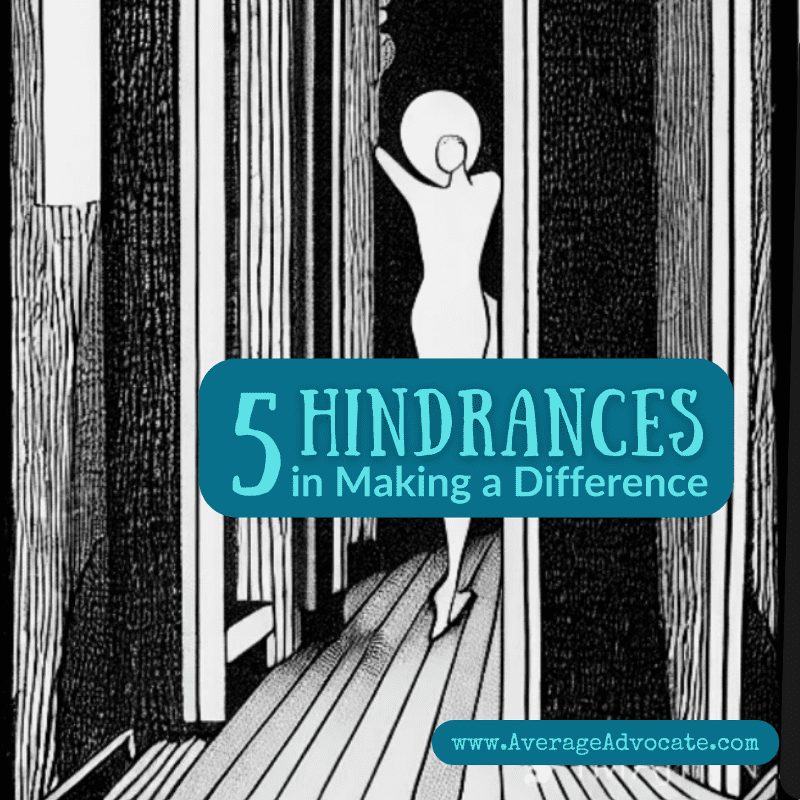
Shame Cycle in Activism
It starts like this. We see the news. We hear the stories. Usually, we can see something is wrong. There might be some major injustice is happening, which we recognize. But it is extremely difficult to process, because of our worldview, how we were raised, and how we’ve learned to trust (or not trust) news sources. We feel confused. We don’t know what we believe. We don’t have the time or energy to figure it out.
It becomes an internal conflict we have a hard time grappling with, especially when others are pushing us, even forcing us to join them in a loud stance. We shame ourselves for not doing something and figuring it out. We become intimidated by the loud voices who do know what they believe on the topic. This makes us retreat or feel more shame.
Does any of this sound familiar? I know I’ve been there.
I see people posting stuff like “unless you post something about being pro-Palestine I cannot be friends with you.” I look at my feed–have I posted enough stuff on this topic to be acceptable to my audience? Especially when the statistics show a good 30% of my audience is still pro-Israel? And another 30+% have no clue what they believe? How do I meet these everyday people to help them respond to injustices on the other side of the globe? Can I do that without driving my pro-Palestine friends away?
But, then I flip-back, feeling scared. After all, “they” cancelled Brene Brown! How do you cancel shame-expert Brene Brown? Heck, maybe she “deserved” to be cancelled, I don’t really know what she said or didn’t say that prompted outrage from Palestinian advocates. Or maybe she didn’t say anything and that was the problem. And then I drank Starbucks while writing this article. Isn’t Starbucks one of the many corporations I am supposed to boycott if I care about the Palestinian people?
Do we really need our social action to be driven by fear and shame?
I don’t believe anyone deserves to be cancelled (Authenticity and the Cure to Cancel-Culture). Holding people accountable is something different than cancelling. Reteaching people humbly willing to learn is also a vital methodology for social change. Even staying away from some people because they feel unsafe can be productive and protective. But cancelling humans and totally policing people isn’t effective activism in my book. My point is that we want people to know how to respond, not shame them into action, or worse, inaction.
But we have another option to create change when we still don’t totally know what we believe.
How Did the Current Israel-Palestine Conflict Begin?
If you are unaware, the political borders of Israel encompass two Palestine territories–the West Bank and Gaza. Although there is a degree of freedom to self-rule, Israel is still ultimately has power over these territories. (Think of it like the Navajo Nation inside of the U.S. Southwest.) Considering, there is continual conflict between Israel and the Palestinian people. It occasionally escalates. The Israel-Palestine conflict is anything but new, but we will come back to that later.
On October 7th, 2023, a horrific and wide-spread terrorist attack took place in the Israeli areas of this region mostly against Israeli civilians. There are no other words for it than it was horrific slaughter, largely in family neighborhoods. Hostages were taken. This was carried out by the group Hamas, a group that doesn’t only serve the Palestine territories, but notably they are the primary leadership of the Palestinian people at this point. Not because they are good leaders, but they’ve garnered power. However, for whatever reason, last year they had anywhere from 70-80% of the Palestinian people’s support. This year it seems to have fallen drastically.
How did Israel respond to this attack? Let’s just say they came down hard. They shut down the majority of movement in/out of Gaza (trade and cross-border work are important to Gaza’s survival). Israel also forced approximately half the population of Gaza move from an already small region into half the area. As someone who lives in San Diego, bordered on the South by another country and on the West by the sea, our layout is similar to Gaza. I can’t imagine our north county’s population becoming refugees in south county! But this is essentially what happened.
Hospitals, refugee camps, and other primarily civilian occupied areas have been brutally attacked by Israel, supposedly to get to Hamas leaders and/or hostages. There have also been attacks in the Palestinian area known as the West Bank. Originally the Israeli response was considered defensive, with the goal of retrieving the hostages that were taken. But most people now view this situation as far exceeding defense nor worth the death toll to try to collect hostages. Either way, the total damage is over-retaliation. At worst, it is a genocide, systematically killing the Palestinian people.
The Numbers
I am not going to bother giving you most of these sources as everything I am mentioning below is commonly agreed-upon information. On October 7th, approximately 1200 Israelis were killed and 250 people were taken hostage. Of them, 120 are still hostages (over forty hostages have been killed). I’ve seen higher stats and lower stats concerning the Israelis, but these seem to be the collectively agreed upon norm.
What about the Palestinians? As of June 2024, we have over 37,000 people killed in Gaza and nearly 90,000 injured. For a long time, women and children were the primary casualties (60%) but this has gone down to 40% (see here). Of course there are debates about these numbers, but regardless, they represent very high fatalities for civilians. What concerns many advocates, though, isn’t the attacks. With the inability to use significant portions of its infrastructure and with severely limited humanitarian aid, Gaza is on the brink of a much worse humanitarian crisis. As far back as March, the International Court already declared Gaza in “catastrophic living conditions.” Famine isn’t just a risk, but already setting in.
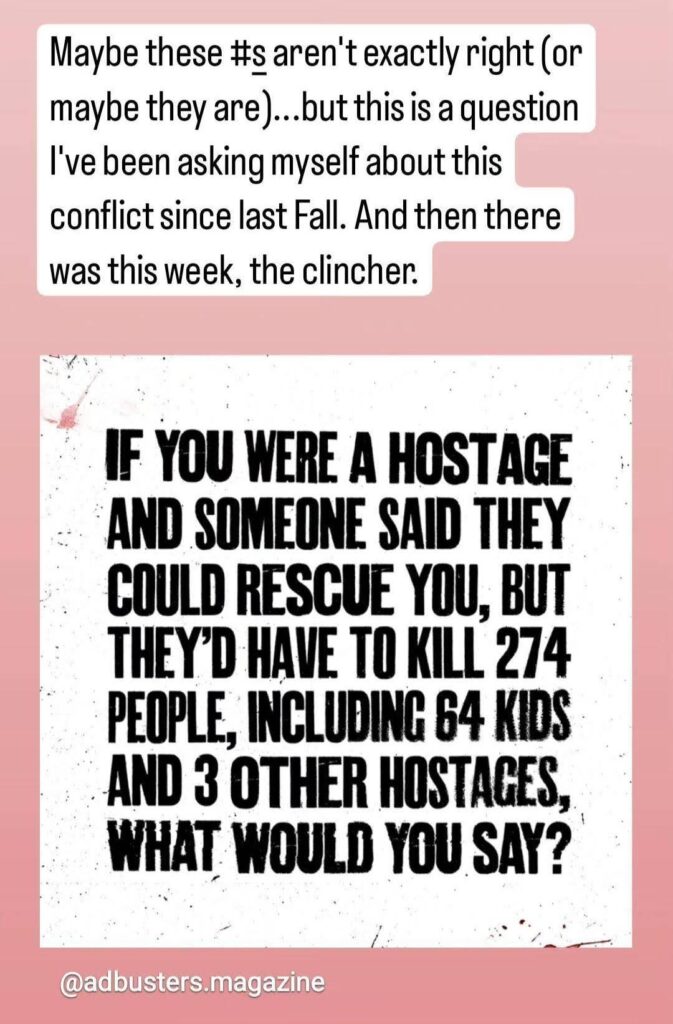
Why Isn’t Everyone Angry About What Is Happening In Palestine?
Looking at the statistics, it is easy to point out this conflict isn’t following any principles of Just War Theory. Not to minimize the horrible pain the Israeli people went through (and some of their people are still in the thick of), Palestinians have a significantly higher death toll. So why hasn’t the public respond accordingly? Let alone the global community at large?
To date, the proposed ceasefires so far haven’t been fully agreed on, and the older ones were broken. This week the U.S. backed a ceasefire that seems to have potential. Much of the clamor in the States has been for the U.S. to actually push for a ceasefire in the first place, so this is better than what we were doing.
Many activists and everyday changemakers angrily protest for the Palestinian children and civilians who are being killed daily in war. Companies are being boycotted and letters and calls are being made to government reps. If human dignity is our value, then this war reeks of retaliation and injustice. More civilian deaths in Gaza can’t bring back those who were already killed in Israel, right?
Hopefully, this summary is helpful. And yes, it is biased, although only towards my high value for all human life. And as that is a shared value around here, I think we have enough common ground for us to keep going!
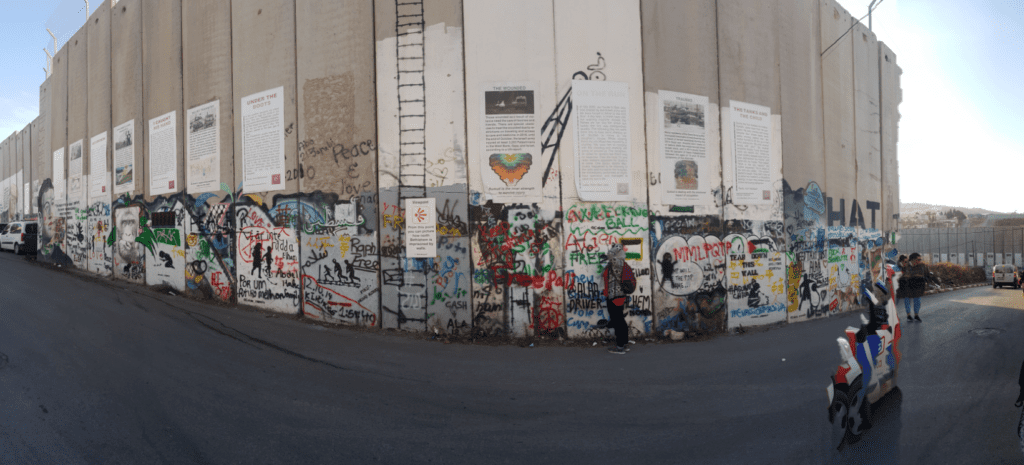
The Various Complexities Around Israel-Palestine
Now that we’ve set the stage for what is happening, with information that is easily accessible, it really gets tricky. After facts come our beliefs about the facts. Social issues like this aren’t responded to based only on statistics, but on ideologies, contributing factors, the types of stories we hear, and how we believe the outcome of actions will affect us.
Let’s go back to the Israel-Palestine conflict for a case-in-point. What are some of the factors that influence what we believe about this situation? I am not an expert, but I have explored the region, taken a college class on Israel/Palestine, and taken two more on global refugees (both which included the Jewish and Palestinians plights). From this experience, these are some of the complexities I see that keep people from knowing what they believe.
Disagreement on Who the Land of Israel-Palestine Belongs To:
- Both the Israeli people and the Palestine people view the space as rightfully theirs to occupy in totality. (I might argue the land belongs to itself, a topic I question here, but that isn’t the point of this overview.) The argument about who this region originally belongs to is ancient, hailing back to the time period found in the first book of the Bible, Genesis.
- The Israel nation-state was sorta-created after WWII by the UN. Actually, the British were supposed to manage the area after the Ottoman empire lost in WWI, and then passed it on the UN who planned to make a nation state for both Palestine and the Diaspora of Jews. After the British left the area, Israel preemptively called it theirs, which made things a little more messy. (Here is one simplified version of history.)
- Many Jews and American Christians specifically grew-up with Zionist ideology, which essentially means that the land belongs by God-given-mandate to the Jews:
- From a Jewish Zionist perspective, the continued restoration of the Jewish people in the land Israel with a rebuilt Temple is God’s divine plan.
- For Christians, according to some interpretations of Biblical prophesy, this is a requirement for the world to be set at rights and Jesus to return. These are high stakes, interwoven into the belief systems of possibly hundreds of millions. I wrote a very in-depth piece about Israel-Palestine last fall for my other blog, Authentically Elisa, from a Christian faith perspective that addresses some of these complexities. This article might help you understand alternative perspectives through a restorative Biblical lens.
- Then, the movement in-and-out of the land by both the Palestinian and Jewish people has a very complex history:
- The Israeli people originally conquered the land after the nomadic years of their patriarch living there, and after centuries of being slaves in Egypt. Then they were kicked-out twice by other nations and wars. After the Romans totally took over in the first century, the Jewish people didn’t occupy their land for more than two thousand years. If they weren’t there, wouldn’t the land be available for the taking?
- Some view the Jews as Palestinians too, as that was what the whole religion was called starting sometime during the Grecian Empire and during the Roman Empire’s occupation of the area. This belief assumes that both groups therefore has the right to the Palestinian land as they are all Palestinian in some form.
- Others view Palestinians as Arab-only. Both Jews and some Arabs claim Abraham as their shared ancestor. Others say that the Arab Palestinians descend from the tribes that the Hebrew people originally conquered in ancient times. Therefore, the Palestinians who later became ethnically Arab have rights to the land
- While the UN was promising a Jewish state, after the Holocaust, it wasn’t necessarily with the permission of the Palestinian people currently living in the region. It doesn’t help that they have a history of violently taking over areas of land designated for Palestinians.
- Lastly, the Six-Day War (or the War of 1967) greatly shifted the power dynamics of the region. Some argue that the Palestinians abandoned their land after being warned in advance by their fellow Arabs so the other local countries could totally wipe Israel out, replacing it with an Arab Palestinian state. Therefore, it was Israel’s right to take the land these Arab Palestinians left behind. Many others share the narrative that the Israelis stole the land of the Palestinians after the war again Israel failed. This story is framed very differently by each person you ask, but has everything to do with the rights of who should be allowed to live where.
I’m sure I am missing some of this, so feel free to respectfully add in the comments things I might be missing. Ultimately, there seems to be beliefs about who the land rightfully belongs to. And, this goes much deeper than the who the land belongs to. Here are other contributing factors.
Other Factors that Influence What We Believe About Israel-Palestine:
- The Western world now strongly stands against antisemitism against Jews (antisemitism is racism against Jews). The Jews themselves experienced a genocide less than one-hundred years ago, killing six-million of their people, and in many ways, the public turned a blind-eye, were uninformed, or in denial at the time. “Never again” became a humanitarian motto. Many people and governments have become very protective of the Israeli people.
- In addition, as antisemitism is still alive and well. It blows my mind to hear of the harmful things people still do and say to Jewish people. Considering, this protection towards Jewish people is actually necessary at times.
- Western governments have personal stake in backing Israel as a nation. I don’t know all these details, but there are financial, political, and strategic reasons why they like Israel as an ally in the Middle East. Some of this is on a large scale, but other times it is because a particular politician needs to look pro-Israel to be reelected.
- Hamas and/or other political orgs connect to Hamas have been determined and promise to take back Israel for themselves. No wonder the Jewish people who are in support of a free Palestine state are still cautioned by the many others who feel nervous they will get wiped out if they fully free these territories to Palestinian rule that is headed by Hamas.
- Many people believe that the Palestinians deserve what they get, because they backed Hamas and Hamas doesn’t actually care about their well being, rather just viewing the people as collateral damage to their cause. This might not be a compassionate take, but it is very American to proclaim, “you made your bed, now lay in it.”
- This conflict with this Hamas goes beyond the Israel/Palestine region. There is a lot of hatred from Hamas of connected organizations towards the United States. Many view giving occupied Palestine their land back as equivalent to giving a terrorist group that hates you power and resources. Taking a trauma-informed approach, the United States has been harmed by Islamic terrorist organizations, which makes us pretty protective of ourselves.
- Taking the trauma-informed approach with Israel, they are also extremely self-protective with extremely high nationalism, thanks to their Holocaust and diaspora experiences.
- Oh, and let’s not forget the Palestinians! They too have experienced significant harm and oppression as refugees under the Israeli government in the last century. They have some pretty good reasons to feel bitter.
- Have I mentioned propaganda yet?
- Stories influence us, and many people are only exposed to one type of story–either the Jewish plight or Palastinian. Fox News gives a very different perspective than MSN. In U.S. news sources, even in the New York Times, I’ve seen activists go through articles, looking at their lanaguge and edits to show how they’re only telling parts of the story
- I’ve heard rumors of propaganda tactics used by Hamas and they aren’t okay. Let’s just say they target children.
- As I mention, Israel is very nationalistic. This plays a huge role in who is viewed as people we live with and care for, vs. who is evil and our enemy. People are surprised to discover there are actually a lot of Pro-Palestine Jewish people. (I have a long list at the bottom of this article here.)
This above list isn’t exhaustive and hopefully it helps you understand why this issue isn’t so black and white to many Americans. According to the Five Phases of Rising Up, we need to enter a learner stage, then from that, mitigate our righteous anger with little actions, where we gain experience and learn more. If you follow steps one-three of these phases, you will be fine. But we don’t always have the luxury to ignore everything until we have the time to intentionally move through these phases. Without extensive time to be curious, relearn, gain new information, learn to trust other news sources, listen to new stories, etc…we cannot really move on our Spectrum of Belief.
The Israel-Palestine crisis feels urgent. And it is for those who are being harmed. Who are being bombed. Who are starving. Who are hostages.
Moving Forward on What We Know For Sure
Even so, even if with something that is complex, we don’t have to respond by ignoring it or doing nothing until we have all the information. My natural tendency is to be pretty quiet about things until I know for sure “where I stand.” But there is another option.
We do what we do know is right, loving, and just.
But just because we don’t know fully what we believe about complex social issues, doesn’t mean we can’t act on what we do know. What we can do is get behind what we feel 100% confident in. I prefer to go-all-in on understanding an issue first so I can be loud and confident. But for somethings that are more complex, I push against my natural tendency by asking what I do believe.
For example, in the case of Israel-Palestine, these are things I believe:
- Both the Arab Palestinians and Jewish Israelis are equally worthy and important humans.
- Bombing civilians and cutting off their access to basic survival isn’t the way to deal with things.
- Israel and the Palestinians can learn to share their land. They both need a space to live and create their own way of living without holding power over each other.
Now that I am clear about what I am for sure behind, I can act specifically on these areas. It means I do want a ceasefire, and I can sign a petition for one. It means I do think it is worth having conversations and supporting political ones about what it would look like for the Palestinians to have a free state. It means I can make sure people in my circles of influence know that civilians are dying pointlessly. It means I can pubicaly question the loss of lives for a hostage. It means I could call my representative and tell them we have to get more aid and infrastructure back into Gaza. I can support orgs that are bringing relief aid. I can be welcoming to both Jewish friends and stand by them in their loss. I can also be caring and befriend Palestinan friends, and care with them about their experiences.
All of these opportunities are available to me.
Not because I know everything about the situation. Heck, for all I know, after I post this article, one of you will gently give me more information, shifting what I believe even more. That is okay. As everyday changemakers, we are always learning! However, I do have a lot of opportunities to still make a difference and do good for the people of Palestine and Israel simply because I know what I do believe. That people matter, even if the political structures around them are confusing or seriously messed up.
Justice For Breonna Taylor
Here is another example. I often got stuck during the Black Lives Matter era in 2020 after Breonna Taylor was tragically shot by police. I kept trying to sort out who-did-what and get overwhelmed my social issues. The stories and accounts were different and complex. I felt like I was trying to run a court case in my mind, but without the information. Did the police do it on purpose? Were they actually racially motivated? Or would this have also happened to a White woman? Should we 100% defund the police?
Then I switched gears. I knew for sure Breonna Taylor was innocent when she was shot. And these things I could advocate for:
- An investigaton
- Police body cams, to make future cases more clear and give better accountability
- For more diversity education for police
I didn’t have to know everything about this specific case to know what I could support. So instead of being hindered by what you don’t have enough information or bandwidth to understand…just act in what you know for sure is right.
“People matter, even if the political structures around them are confusing or seriously messed up.”
Elisa Johnston
🍉🍉🍉🍉
Also, I thought you might like to know that the watermelon is the hopeful symbol to share you desire the flourishing of the Palestinian people. I like this!

